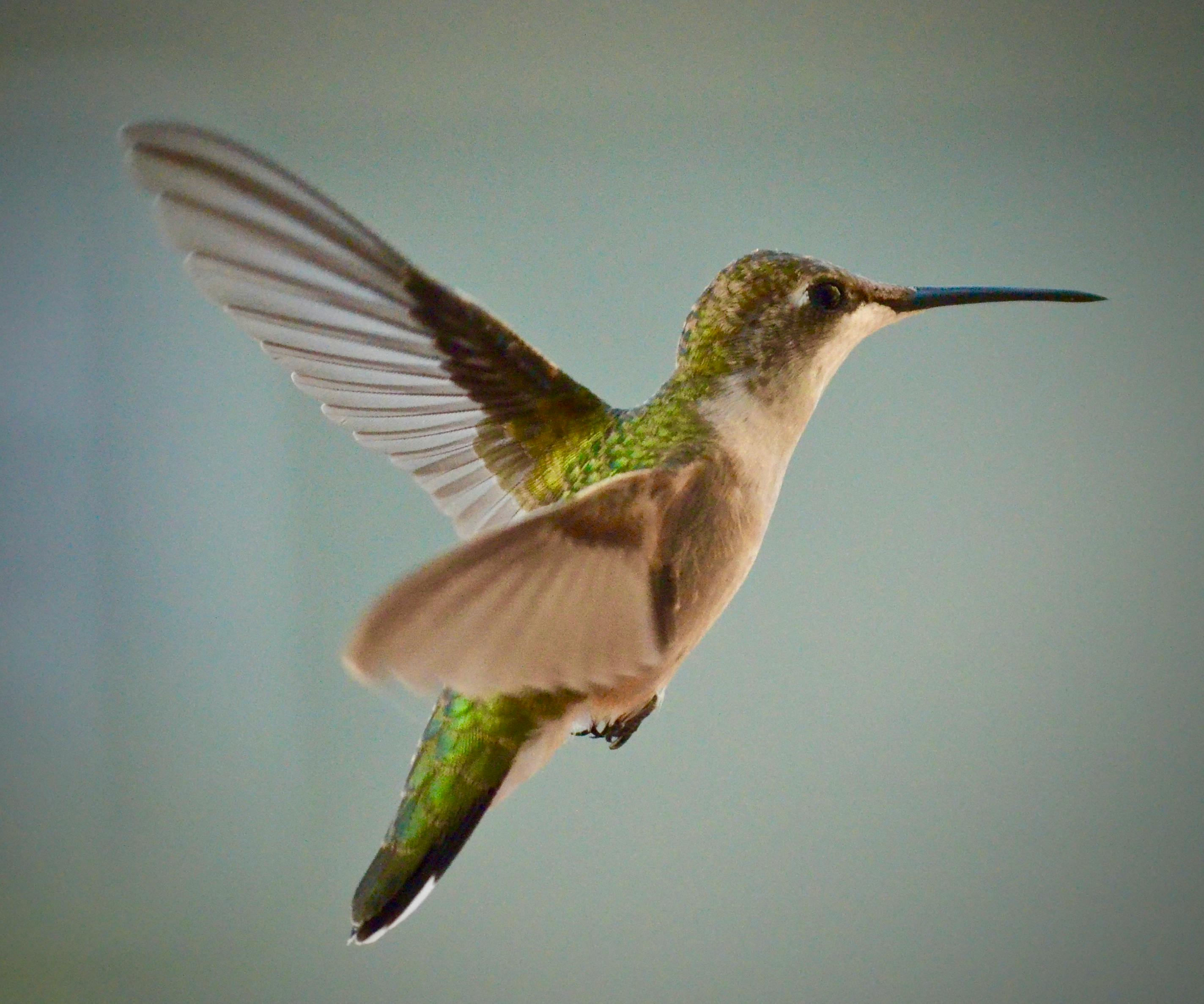Introduction

Bird pregnancy, also known as avian reproductive cycle, refers to the period during which female birds develop and carry eggs inside their bodies before laying them. Unlike mammals, birds do not have a uterus or a placenta, so their pregnancy process differs significantly.
Understanding if a bird is pregnant can be crucial for bird breeders, aviculturists, and enthusiasts who want to ensure the well-being and reproductive health of their birds. It allows bird owners to provide appropriate care and condition the bird’s environment to support a successful breeding and nesting process. Identifying pregnancy in pet birds can also be helpful for individuals who want to prevent unintended breeding or plan for the arrival of new chicks. Recognizing pregnancy signs can be an indicator of a bird’s overall health, as any abnormalities or complications during the reproductive cycle may require veterinary attention. Moreover, knowledge of a bird’s pregnancy status can help in determining the optimal time for conducting certain procedures, such as DNA sexing or hormonal testing.
In this article, we will explore the signs and symptoms of bird pregnancy, methods for diagnosing pregnancy in birds, proper care and nutrition during pregnancy, common problems that may arise, and the importance of understanding bird pregnancy for bird owners. By the end, you will have a comprehensive understanding of bird pregnancy and how to ensure the well-being of your feathered friends throughout this crucial reproductive phase.
Signs & Symptoms of Bird Pregnancy

Bird pregnancy can be identified through various physical and behavioral changes. These indicators provide valuable insights into the reproductive state of birds, allowing owners to provide appropriate care and support.
Physical Changes in the Bird
-
Enlargement of the abdomen: As the bird’s body prepares to lay eggs, the abdomen may visibly enlarge, particularly in certain species.
-
Weight gain: Pregnant birds may experience weight gain due to the growth of eggs and increased fluid retention within their bodies.
-
Swollen vent: The vent, located near the base of the tail, may appear swollen or protrude slightly in pregnant birds as the reproductive organs prepare for egg production.
-
Changes in feather appearance: Some birds may undergo molting or experience changes in the appearance of their feathers during pregnancy due to hormonal fluctuations and energy demands of reproduction.
Behavioral Changes
-
Increased appetite: Pregnant birds often exhibit an increased appetite as their bodies require extra energy for egg development.
-
Nesting behavior: Many birds display nesting behavior when preparing to lay eggs, involving gathering and arranging materials to create a suitable nesting site.
-
Protective behavior: Pregnant birds may become more territorial and protective of their nesting area, displaying aggression towards intruders.
Nest Building
-
Nest construction: Female birds engage in nest building or modification to create a secure and comfortable nesting site.
-
Nest location: Pregnant birds carefully select a secluded and safe location for their nest, providing protection from predators and disturbances.
Egg Laying
Once the signs and symptoms of bird pregnancy become evident, egg laying typically follows. The timing of egg deposition varies among bird species, with some laying eggs daily or every few days until the full clutch is complete.
Understanding these signs and symptoms of bird pregnancy enables owners to monitor and support their avian companions during this critical reproductive period. By providing appropriate care, nutrition, and a safe nesting environment, owners can promote the health and well-being of their pregnant birds.
Diagnosing Bird Pregnancy

Diagnosing bird pregnancy involves various methods to determine if a bird is carrying eggs, including physical examination, ultrasound imaging, and egg testing.
Physical Examination
Observing changes in the bird’s behavior and appearance can provide valuable clues. Nesting behavior, swollen vent area, and gently palpating the abdomen can indicate pregnancy, although veterinary expertise may be required for accurate interpretation.
Ultrasound
Ultrasound imaging is a non-invasive and highly effective technique for diagnosing bird pregnancy. It allows for visualizing the reproductive organs and determining the presence of eggs. An avian veterinarian or an experienced breeder should perform the ultrasound examination to ensure accurate interpretation of the results.
Egg Testing
Egg testing methods such as candling, egg flotation, and blood testing can confirm pregnancy and assess fertility. Candling involves examining the contents of the egg against a bright light source to observe blood vessels or a developing embryo. Egg flotation determines fertility by placing the egg in water—floating eggs are more likely fertile, while sinking eggs are likely infertile. Blood testing analyzes hormone levels to indicate the presence of a developing embryo.
By utilizing a combination of physical examination, ultrasound imaging, and egg testing, avian professionals can accurately diagnose bird pregnancy and provide appropriate care during this crucial period.
Care & Nutrition During Pregnancy

Proper care and nutrition are crucial during pregnancy to ensure the health and well-being of the bird and its developing eggs. Here are some important considerations for providing optimal care during this period:
Dietary Changes
Pregnant birds have increased energy demands and require additional nutrients to support the growth and development of their eggs and embryos. Consider the following dietary changes:
-
Increase food intake: Pregnant birds naturally increase their food intake to meet heightened energy requirements. Ensure a fresh food supply is available throughout the day.
-
Protein and calcium: Include high-quality protein sources in the bird’s diet for egg production. Insects, mealworms, or specially formulated bird pellets are good options. Provide calcium supplements or crushed eggshells for proper eggshell formation.
-
Vitamin and mineral supplementation: Some bird species may benefit from vitamin and mineral supplements during pregnancy. Consult with a veterinarian or avian specialist to determine specific needs.
Temperature Regulation
Maintaining proper temperature is vital for successful incubation and healthy embryo development. Pregnant birds exhibit specific behaviors to regulate temperature effectively:
-
Nesting behavior: Pregnant birds engage in nesting behaviors to create a suitable environment for egg incubation. They spend more time in the nest, arranging and adjusting materials to regulate temperature and humidity.
-
Brood patch development: Some bird species develop a brood patch, a featherless area on the abdomen, during pregnancy. This patch allows direct contact between the parent bird’s warm skin and the eggs, facilitating efficient heat transfer.
Stress Management
Stress can negatively affect egg viability and reproductive success. Ensure a stress-free environment for the pregnant bird with the following tips:
-
Minimize disturbances: Pregnant birds are sensitive to disturbances and stressors. Minimize loud noises, sudden movements, and excessive handling or interaction. Provide a calm and quiet environment.
-
Maintain a consistent routine: Birds thrive on routine and familiarity. Keep a consistent schedule for feeding, cleaning, and daily activities to reduce stress and provide a sense of security.
-
Provide hiding spots: Offering hiding spots within the bird’s enclosure provides a sense of security and allows the bird to retreat and relax when needed.
By implementing proper care, nutrition, and stress management techniques, you can contribute to the overall well-being and successful pregnancy of your bird.
Common Problems During Pregnancy

During pregnancy, birds can experience various complications that require attention and proper care. Understanding these common problems can help bird owners identify potential issues and seek timely veterinary assistance. The following are three significant concerns that may arise during bird pregnancy: egg binding, egg yolk peritonitis, and prolapsed cloaca.
Egg Binding

Egg binding is a condition in which a bird is unable to expel an egg from its reproductive tract. It can occur in any bird, but it is more prevalent in smaller species like canaries, finches, and budgies. Signs of egg binding include straining, abdominal distension, restlessness, decreased appetite, and lethargy. Prompt attention is crucial since egg binding can be a serious and potentially life-threatening condition.
Several factors can contribute to egg binding, including calcium deficiencies, inadequate nesting materials, obesity, genetic predisposition, or reproductive abnormalities. Treatment options may involve creating a warm and humid environment, gentle massage of the abdomen, calcium supplementation, and, in severe cases, manual extraction or surgery performed by a veterinarian.
Egg Yolk Peritonitis

Egg yolk peritonitis is an inflammatory condition that occurs when egg yolk leaks into the abdominal cavity instead of being expelled through the cloaca. It can affect birds actively laying eggs or those that have recently laid eggs. Common signs include abdominal distension, lethargy, decreased appetite, difficulty breathing, and changes in droppings.
Causes of egg yolk peritonitis can include reproductive disorders, bacterial infections, or trauma to the reproductive organs. Treatment typically involves supportive care, including antibiotics, anti-inflammatory medications, and drainage of accumulated fluid within the abdominal cavity. In severe cases, surgery may be necessary to address the underlying cause and prevent further complications.
Prolapsed Cloaca

A prolapsed cloaca refers to the protrusion of the cloaca, a common opening for the digestive, urinary, and reproductive systems, outside the body. During pregnancy, the increased size and pressure of the developing eggs can strain the reproductive organs, leading to a prolapsed cloaca. This condition requires immediate veterinary attention.
Signs of a prolapsed cloaca include the protrusion of the cloaca, swelling, redness, and potential bleeding. Treatment typically involves cleaning the affected area, gently repositioning the cloaca back into the body, and providing supportive care to prevent infection and promote healing. In some cases, a veterinarian may need to suture the cloaca to prevent further prolapse.
Understanding these common problems during bird pregnancy empowers bird owners to detect potential complications and take appropriate measures. Prompt veterinary care and attentive management can help ensure the well-being of both the expectant bird and her offspring.
Conclusion


In conclusion, being aware of common problems that can occur during bird pregnancy is essential for bird owners. Egg binding, egg yolk peritonitis, and prolapsed cloaca are significant concerns that may arise. Recognizing the signs and symptoms of these conditions and seeking timely veterinary assistance are crucial for the health and well-being of the pregnant bird. By understanding these challenges and providing appropriate care, bird owners can create a safe and nurturing environment for their feathered companions throughout the pregnancy journey.
Conclusion
Understanding and identifying bird pregnancy is crucial for bird owners and enthusiasts. By recognizing the signs and symptoms, diagnosing pregnancy accurately, providing appropriate care and nutrition, and addressing potential complications, we can ensure the well-being of our avian companions.
Let’s recap the key points discussed throughout this article:
Signs & Symptoms of Bird Pregnancy
Birds exhibit physical and behavioral changes that may indicate pregnancy. Physical changes include weight gain, abdominal changes, and a swollen vent or cloaca. Behavioral changes can manifest as altered appetite, nesting behavior, and hormonal fluctuations. However, it’s important to note that these signs are not definitive proof of pregnancy and should be confirmed by a veterinarian.
Diagnosing Bird Pregnancy

A veterinary examination is necessary to confirm bird pregnancy. Veterinarians can perform physical examinations, conduct ultrasound scans to visualize the developing eggs, or utilize egg testing to identify pregnancy hormones. Seeking professional advice is essential for accurate diagnosis.
Care & Nutrition During Pregnancy
Proper care and nutrition are vital during bird pregnancy. Dietary changes should be made to support the bird’s increased nutritional needs, such as incorporating a variety of fresh fruits, vegetables, and high-quality pellets into their diet. Maintaining an appropriate temperature in the bird’s environment is crucial, as extremes can negatively impact the developing eggs. Additionally, managing stress levels through a calm and secure environment is essential for the well-being of the pregnant bird.
Common Problems During Pregnancy
While bird pregnancy is a natural process, complications can arise. Egg binding, egg yolk peritonitis (leakage of yolk into the abdominal cavity), and prolapsed cloaca are common problems that may require immediate veterinary attention.
In summary, being aware of the signs and symptoms of bird pregnancy, seeking professional veterinary assistance for accurate diagnosis, providing proper care and nutrition, and addressing potential complications are key aspects of ensuring the health and well-being of pregnant birds. By following these guidelines, bird owners can provide optimal care and support for their feathered friends throughout the pregnancy journey. Remember to always consult a veterinarian for personalized advice and care tailored to your bird’s specific needs.
Frequently Asked Questions

FAQ

1. How can you tell if a bird is pregnant?

To determine if a bird is pregnant, you can look for physical and behavioral changes. Physical signs may include an enlarged abdomen, weight gain, a swollen vent or cloaca, and changes in feather appearance. Behavioral indicators include increased appetite, nesting behavior, and protective behavior around the nesting area. It’s important to note that these signs are not definitive proof of pregnancy and should be confirmed by a veterinarian.
2. Can you diagnose bird pregnancy at home?
While some signs may suggest bird pregnancy, a definitive diagnosis should be made by a veterinarian. They can perform a physical examination, conduct ultrasound imaging to visualize the developing eggs, or use egg testing methods to detect pregnancy hormones. Seeking professional veterinary assistance is crucial for accurate diagnosis.
3. What should I feed my pregnant bird?
Pregnant birds have increased energy demands and require additional nutrients. Their diet should include high-quality protein sources such as insects, mealworms, or specially formulated bird pellets. Calcium supplements or crushed eggshells should be provided for proper eggshell formation. Consult with a veterinarian or avian specialist to determine specific dietary needs for your bird species.
4. How can I create a suitable nesting environment for my pregnant bird?
To create a suitable nesting environment, ensure the availability of nesting materials such as twigs, leaves, and soft bedding. Pregnant birds carefully select a secluded and safe location for their nests, away from predators and disturbances. Providing hiding spots within the enclosure can also offer a sense of security for the bird.
5. What are common problems during bird pregnancy?
Common problems during bird pregnancy include egg binding, egg yolk peritonitis, and prolapsed cloaca. Egg binding occurs when a bird is unable to expel an egg from its reproductive tract. Egg yolk peritonitis is the leakage of yolk into the abdominal cavity. Prolapsed cloaca refers to the protr

Leave a Reply